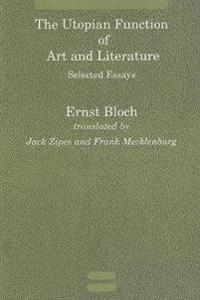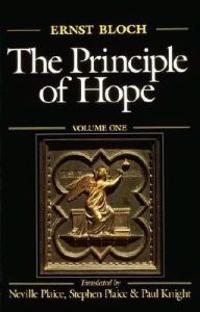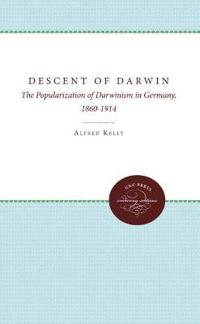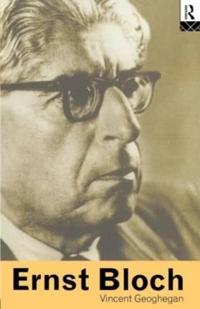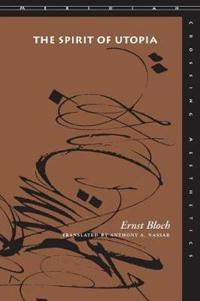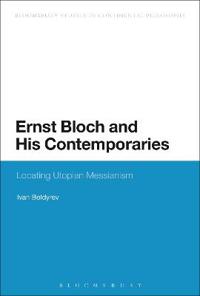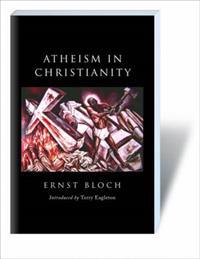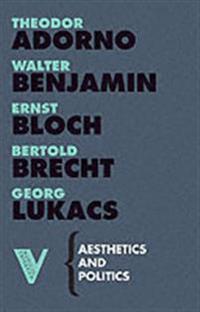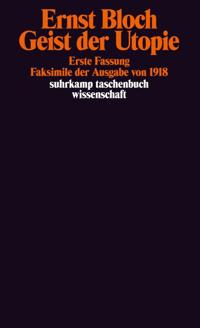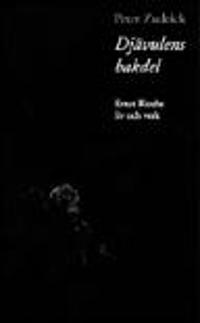Natural Law and Human Dignity (Övrig)
avErnst Bloch
ISBN: 9780262521291 - UTGIVEN: 1986-01-01Ernst Bloch (1885-1977), one of the most original and influential of contemporary European thinkers and a founder of the Frankfurt School, has left his mark on a range of fields from philosophy and social theory to aesthetics and theology. Natural Law and Human Dignity, the first of his major works [...]
The Utopian Function of Art and Literature (Pocket)
avErnst Bloch, Jack David Zipes, Frank Mecklenburg
ISBN: 9780262521390 - UTGIVEN: 1989-03These essays in aesthetics by the philosopher Ernst Bloch belong to the tradition of cultural criticism represented by Georg Lukacs, Theodor Adorno, and Walter Benjamin. Bloch's fascination with art as a reflection of both social realities and human dreams is evident in them. Whether he is discussin[...]
The Principle of Hope (Häftad)
avErnst Bloch
ISBN: 9780262521994 - UTGIVEN: 199507translated by Neville Plaice, Stephen Plaice, and Paul KnightThe Principle of Hope is one of the great works of the human spirit. It is a critical history of the utopian vision and a profound exploration of the possible reality of utopia. Even as the world has rejected the doctrine on which Bloch so[...]
The Principle of Hope (Häftad)
avErnst Bloch
ISBN: 9780262522014 - UTGIVEN: 1995-07The Principle of Hope is one of the great works of the human spirit. It is a critical history of the utopian vision and a profound exploration of the possible reality of utopia. Even as the world has rejected the doctrine on which Bloch sought to base his utopia, his work still challenges us to thin[...]
Ernst Bloch (Pocket)
avVincent Geoghegan
ISBN: 9780415049047 - UTGIVEN: 1996-06Ernst Bloch is perhaps best known for his subtle and imaginative investigation of utopias and utopianism, but his work also provides a comprehensive and insightful analysis of western culture, politics and society. Yet, because he has not been one of easiest of writers to read his full contribution[...]
The Spirit of Utopia (Häftad)
avErnst Bloch
ISBN: 9780804737654 - UTGIVEN: 200011The first English translation of Bloch's The Spirit of Utopia.
Ernst Bloch and His Contemporaries (Inbunden)
ISBN: 9781472511768 - UTGIVEN: 2014-02Ernst Bloch and His Contemporaries is a much needed concise yet comprehensive overview of Ernst Bloch's early and later thought. It fills an important gap in research on the history of German thought in the 20th century by reconstructing the contexts of Bloch's philosophy, while focusing on his cont[...]
Ernst Bloch and His Contemporaries
ISBN: 9781474242066 - UTGIVEN: 2015-08Ernst Bloch and His Contemporaries is a much needed concise yet comprehensive overview of Ernst Bloch's early and later thought. It fills an important gap in research on the history of German thought in the 20th century by reconstructing the contexts of Bloch's philosophy, while focusing on his cont[...]
Atheism in Christianity (Pocket)
avErnst Bloch, Peter Thompson, J. T. Swann
ISBN: 9781844673940 - UTGIVEN: 200906Visionary utopian thinker finds the atheist core of the bible. In recent years religious faith has come under much scrutiny from secular progressives. Fear of a rise in Islamic and Christian fundamentalism has prompted numerous attacks on the belief in God which make no attempt to understand its sou[...]
Aesthetics and Politics (Häftad)
avTheodor W. Adorno, Walter Benjamin, Ernst Bloch
ISBN: 9781844675708 - UTGIVEN: 200612No other country and no other period has produced a tradition of major aesthetic debate to compare with that which unfolded in German culture from the 1930s to the 1950s. In Aesthetics and Politics the key texts of the great Marxist controversies over literature and art during these years are assemb[...]
Ernst Bloch - en introduktion (Häftad)
avD Horster
ISBN: 9789185258321 - UTGIVEN: 198101"Djävulens bakdel" är en levande skildring av Blochs hela liv: Barndomen och uppväxten i en välbärgad men trångsynt borgerlig familj i det wilhelminska Tyskland, de bohemiska ungdomsåren i München och Berlin, exilen i Schweiz under första världskriget, det kulturella och politiska engagema[...]


